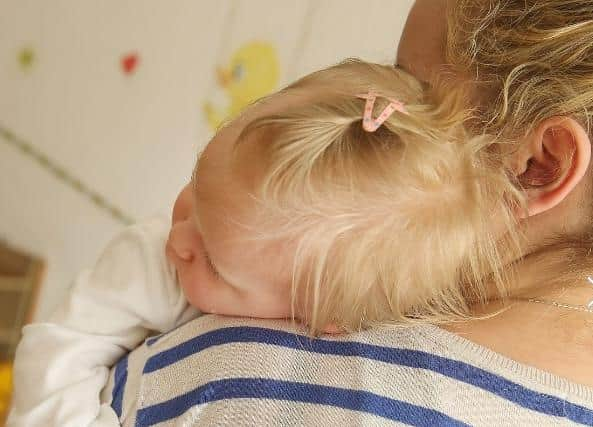Here's a list of illnesses that kids CAN and CAN'T go to school with, according to the NHS
and live on Freeview channel 276
Those little noses run (a lot) and there's always a cough or cold going around.
So it can be tricky to know if it's something to keep them at home for.
Advertisement
Hide AdAdvertisement
Hide AdThere are guidelines set out by the government for nurseries and schools saying when a child should be allowed to go and when they should be kept at home.


The NHS says that if your child is well enough to go to school, but they have an infection that could be passed on, such as a cold sore or head lice, then let their teacher know.
Also, if you do decide to keep your child at home, it's important that school is called to let them know.
Here's a full list of illnesses your child may come down with and if you should keep them home, according to the NHS:
Cold sores
Advertisement
Hide AdAdvertisement
Hide AdThere's no need to keep your child off school if they have a cold sore. Try to tell them not to touch the blister or kiss anyone while they have the cold sore, or to share things such as cups and towels.
Conjunctivitis
You don't need to keep your child away from school if they have conjunctivitis. Speak to a pharmacist for advice.
Coughs and colds
It's fine to send your child to school with a minor cough or cold, but if they start having a fever, keep them off school until the it goes.
Ear infection
If your child has an ear infection and a fever or severe earache, keep them off school until they're feeling better or their fever goes away.
Chickenpox
Advertisement
Hide AdAdvertisement
Hide AdIf your child has chickenpox, keep them off school until all the spots have crusted over. This is usually about five days.
Fever
Keep them off school until the fever goes away.
Hand, foot and mouth disease
If they seem well enough to go to school, there's no need to keep them off. They need to throw away any used tissues straight away and make sure they are washing their hands regulary.
Head lice and nits
There's no need to keep your child off school if they have head lice, but make sure you let the school/nursery/playgroup know.
Impetigo
They'll need antibiotic treatment from the GP and keep them off school until all the sores have crusted over and healed - or for 48 hours after they start antibiotics. They need to be washing their hands regularly and not share towels, cups etc with other children at school.
Ringworm
Advertisement
Hide AdAdvertisement
Hide AdSee your pharmacist unless it's on their scalp, in which case you should see the GP. Once treatment has started, it's fine for your child to go to school.
Scarlet fever
They will need treatment with antibiotics from the GP. Otherwise they will be infectious for up to three weeks. They can go back to school 24 hours after starting the course of antibiotics.
Slapped cheek syndrome
They can go to school if they have slapped cheek syndrome as once the rash appears, they are no longer infectious.
Sore throat
They are fine to go to school, but keep them home if they start with a fever.
Threadworms
Advertisement
Hide AdAdvertisement
Hide AdSpeak to your pharmacist, who can recommend a treatment, hut there's no need to keep them home from school.
Vomiting and diarrhoea
Children with diarrhoea or vomiting should stay away from school for two days after their symptoms have gone.